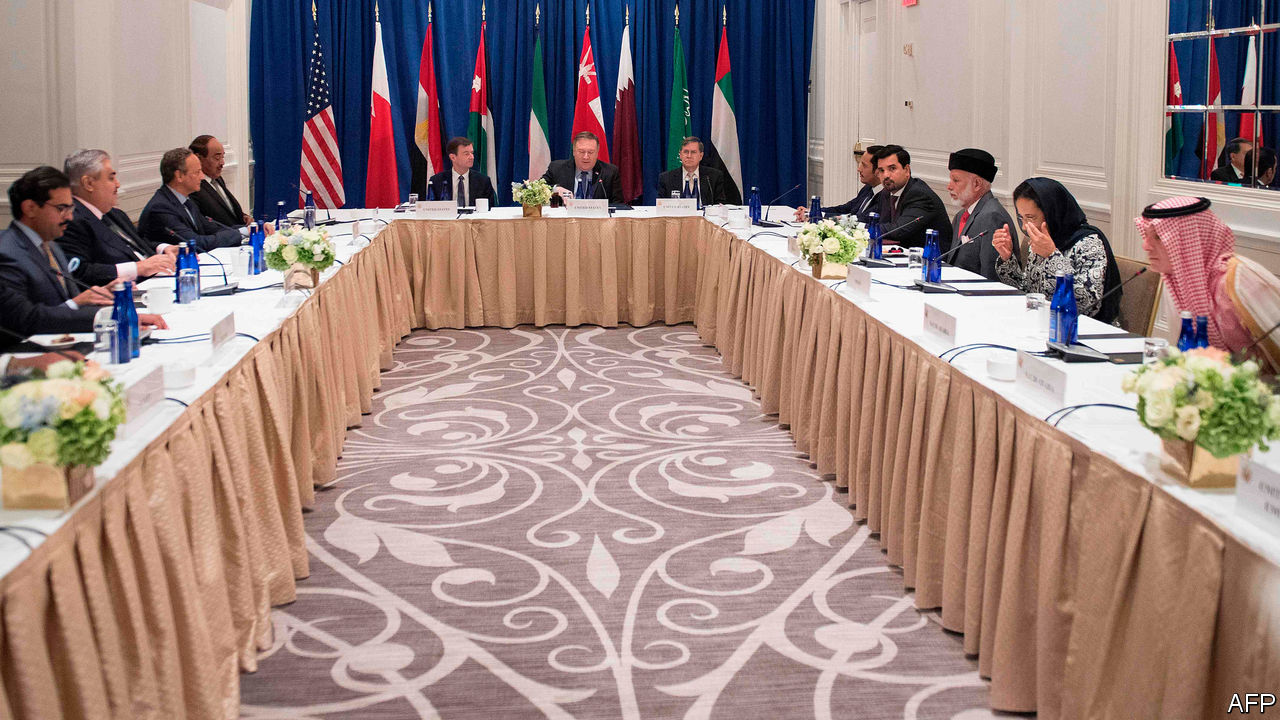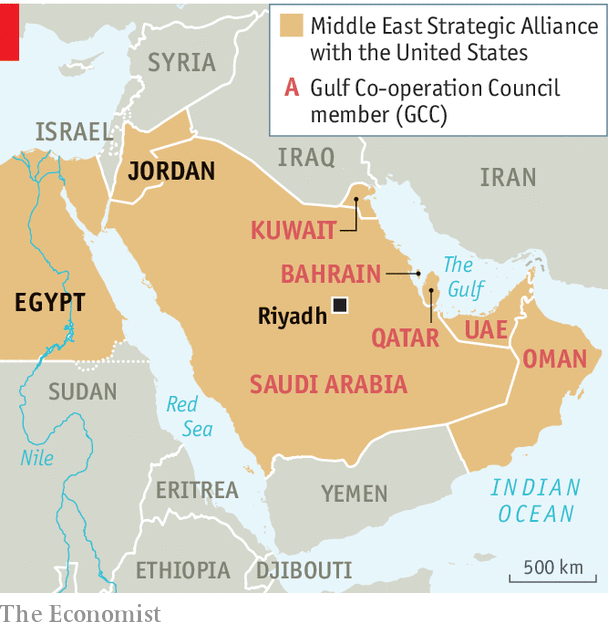Arab coalitions were humiliated in almost all of their wars with Israel. Shortly after the GCC was formed in 1981, it created the Peninsula Shield force. That not only proved useless in the Gulf war, but the following year Saudi and Qatari troops killed each other in border clashes. In 2014 the idea of a GCC joint command was resuscitated. Little came of it.
One problem is that smaller states fear ceding control to larger neighbours. In the 1960s it was Egypt that caused jitters; today it is Saudi Arabia, under the de facto rule of Muhammad bin Salman, its ambitious crown prince. His obsession with Iran is another concern. Though he is supported by the United Arab Emirates (UAE), Kuwait and Oman are more sanguine about the threat posed by Iran. A third problem is that many Arab states blame foreign foes for internal troubles, such as protests and terrorism. Even Mr Trump may not be keen to help his autocratic allies put down dissent in the name of defence.
But the biggest obstacle in MESA’s path is a dispute between Arab states. For over a year Saudi Arabia, the UAE, Bahrain and Egypt have blockaded Qatar over its contrarian stances. The feud has hit military co-operation, with America pulling out of drills with its Gulf allies last October to encourage “inclusiveness”. America’s main base in the region is in Qatar.
MESA will probably go the way of other half-baked defence schemes—from the Arab League’s Joint Defence Council of 1950 to Saudi Arabia’s Islamic Military Counter-Terrorism Coalition in 2015. “Every couple of years someone comes up with a big idea,” says Emile Hokayem of the International Institute for Strategic Studies, a think-tank in London. “People work like crazy for a year. And it ends with a shiny new building and a deck of PowerPoint slides.”
More important than any multilateral bloc is America’s commitment to the region. Yet even here, a gap is opening between words and deeds. America has pledged to keep its troops in Syria “as long as Iranian troops are outside Iranian borders”. But there has been no American aircraft-carrier in the Persian Gulf for six months, the longest absence in 20 years. Next month America will pull four missile defence batteries out of Bahrain, Jordan and Kuwait, just as Iran threatens missile attacks on Gulf capitals. James Mattis, the defence secretary, wants to reduce America’s military footprint in the Middle East after 17 years of continuous war. Mr Trump will probably show more enthusiasm for flogging weapons to his Arab allies than wading onto the battlefield next to them.
This article appeared in the
Middle East and Africa section of the print edition under the headline
"NATO for Arabs?"







